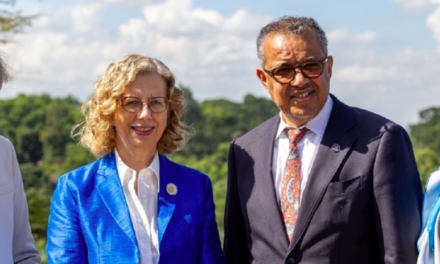
“We made excellent progress this week, covering more than a third of the proposed amendments, and considered critical areas such as core capacities for surveillance and response, and collaboration and assistance. Three new articles on compliance and implementation were also discussed, as well as new articles related to the public health response, such a proposal for finance mechanisms, access to health products, technologies and know-how during public health response,” said Dr Ashley Bloomfield, former Director-General of Health, New Zealand and Co-Chair of the IHR Working Group.
“COVID showed the world how vulnerable we all are and what needed fixing in the global public health architecture if we are to be better prepared for the next big event and the tone of the discussions during this week’s meeting clearly shows that everyone wants to ensure that this process is successful.”
Throughout the four-day meeting from 17-20 April, the 196 State Parties to the IHR stressed the importance of thoroughly considering the proposed amendments on their merits of filling critical gaps in the implementation of the IHR, while being mindful of the critical importance of the principles of equity, sovereignty, and solidarity.
Fellow IHR Working Group Co-Chair, Dr Abdullah M. Assiri, Deputy Minister of Health, Kingdom of Saudi Arabia, said governments were committed to strengthening the IHR for the benefit of every country and every citizen.
“Countries are in the driving seat of this process as they need to implement the IHR, deliver on the obligations, and make the key decisions needed to respond to public health threats. Together, this week, we have seen how their positive tone and constructive work has allowed us to move work substantially forward,” said Dr Assiri.
In the lead-up to the meeting, an independent and diverse team of experts prepared a technical assessment of the proposed amendments to assist countries in their negotiations.
It is expected that the WGIHR will meet again three times in 2023 – in July, October and December – to discuss and agree on amendments and present a package of proposed amendments to the World Health Assembly in May 2024.
In parallel with the IHR amendments process, governments are also negotiating the drafting of a WHO instrument on pandemic prevention, preparedness and response, also referred to as a pandemic accord. Governments will meet again from 12-16 June 2023 to consider the zero draft of the accord as a basis for a first draft as the basis for negotiation. The WGIHR supported the proposal from the fifth meeting of the Intergovernmental Negotiating Body for the drafting of the WHO pandemic instrument (INB5) to hold a joint plenary meeting of the two bodies.
WHO Member States issued the International Sanitary Regulations in 1951, the precursor to the IHR, which came into being in 2005. The IHR are an instrument of international law that is legally-binding on 196 State Parties, including the 194 WHO Member States.
[i] Liechtenstein and the Holy See are State Parties to the IHR but not Member States of WHO











